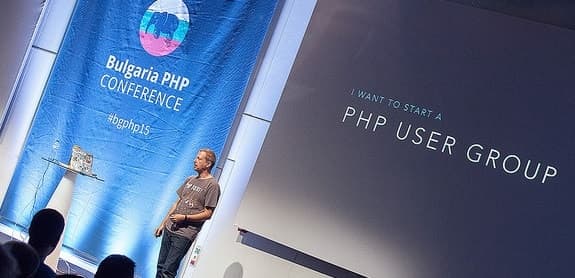What is PHP Programming?
PHP programming language is perhaps one of the most popular server side scripting language in use today. It was created by Rasmus Lerdorf in 1994, and was known as Personal Home page, hence PHP. Ever since its inception, the language was used for far greater use than it was intended for, and the growth had been massive.
By 2103, there were about 240 million websites and 2.1 million internet servers in use. New versions and variations of the file have been created since the first release. It is believed to be one of the easiest languages to master, and is an incredible choice for building websites as it helps to create charts, graphs, image links, thumbnail image gallery and plenty more. Developers use it for creating sign up pages, manage forum posts, guests posts and so on.
Anyone can make a website using PHP, even generate content, and the best thing is that you don’t even have to know the basics of HTML. The programming technology delivers fast performance. If you want to get going with a website in the shortest time possible, this would be the answer, the turnaround time is impressive.
Following are the some of the major advantages of the language
1) It’s open source
One of the major attractions of the language is that any major company does not license it, so it is open source, and has a huge an extensible library. If you ever run into a hitch while programming, support from a growing community of developers is guaranteed.
2) It’s really quick
Developers enjoy using programming languages that are quick. This one fits the bill. Websites built with the language are easier to load. People all over the world prefer fast loading websites (as they still struggle with internet speeds from time to time), and will never visit slow ones. The time for deployment is also faster in PHP. Developers work hard to refactor the codebase so there is less memory consumption, but increased performance level. The latest version PHP 7 is really set to establish new boundaries in speed and performance.
3) Stable
The language has been around for almost 24 years in the market now. Millions of developers from across the world have used it successfully. They have also fixed bugs, perfected the language, added more libraries, made it more stable.
4) Embedding
A great feature of the programming language is that you can embed it easily into HTML. This is so nice because you can convert a static website into a dynamic one.
5) Multiple extensions
PHP is scalable as it is integrated with multiple extensions. This makes your application speedy and stable. See an improvement in your ROI and stay on top of competition as a result of using this programming language.
6) The future is bright
The technology has been around for a very long time, and it going to be there even longer. Nothing is going to replace it anytime soon. And it’s well-paying, and very rewarding.
7) Cross-platform/incredible platform independence
The language runs on various platforms. The developer can focus on the task at hand, and not be worried about the operating system of the client/user. Seamless operations across various platforms are possible. It is also possible to fund hosting service providers easily. This is greatly helpful for commercial software developers as they don’t have to dedicate considerable time and manpower to move codes from one platform to another.
8) Reduce the cost of program defects
Web requests start with a completely blank state with uninitialised namespaces and globals (except for functions, classes & standard globals). If there is a software defect and failure, the bug does not interfere with the subsequent requests. PHP helps in isolating request heaps, and aids in reducing program defects.
9) It is preconfigured
There is a ready to use PHP set up in many hosting services. So you don’t have to do any special configurations while creating a website. However, if your requirements call for high security, then you might have to tailor it.
Features that you can enjoy with the latest version
New features are being added with each version. PHP 5 was famous for its support of OOP and similar functionalities. Then came PHP 5.3 and now, 7. PHP 7 is incorporated with some incredible features in its kitty. Let’s do a quick run through of them:
- Speed – This version of PHP is really faster than its previous versions. It is slated to be twice as fast as version 5.6.
- Type Declarations – Type Declarations can help you define the variable so you can achieve anticipated results. In the new version, you can set this Automatically.
- More control over code – PHP 7 has added Scalar type hints like int, float, string & bool. This makes it easier for you to write correct and self- documenting PHP programs, easy to read codes and control over them. Scalar type declarations are by default non-strict, so you can change the original type to match the type specified, and remove everything else.
- New operators – The new version throws in some new operators like Spaceship Operator and Null Coalesce Operator to complement the greater- than and less-than operators. Both these are nice additions to the language. Return type declarations – Provides support for return type declarations , the type of value that will be returned from a function. Return type declarations and argument type declarations are both of the same types.
- Anonymous classes – Through new classes, support for anonymous classes has been added.
- Constant arrays using define() – Define your array constants with define(). This was not possible in earlier versions. Developers use it in place of full class definitions for throwaway objects:
Conclusion
Undoubtedly, PHP is one of the best tools in a developer’s arsenal. It is practically impossible to go forward in your career if you are not knowledgeable in this language. Additionally, this service lets you use other tools that might be necessary for the smooth functioning of your business, like Google Maps, for instance.
Interesting Articles:
Basics of PHP Programming
Introduction to PHP given by w3schools
Flickr.com / Markus / BGPHP

The author: Reema Oamkumar is engaged as a thought leader at www.Software-Developer-India.com which is a part of the YUHIRO Group. YUHIRO is a German-Indian enterprise which provides programmers to IT companies, agencies and IT departments.


Leave a Reply